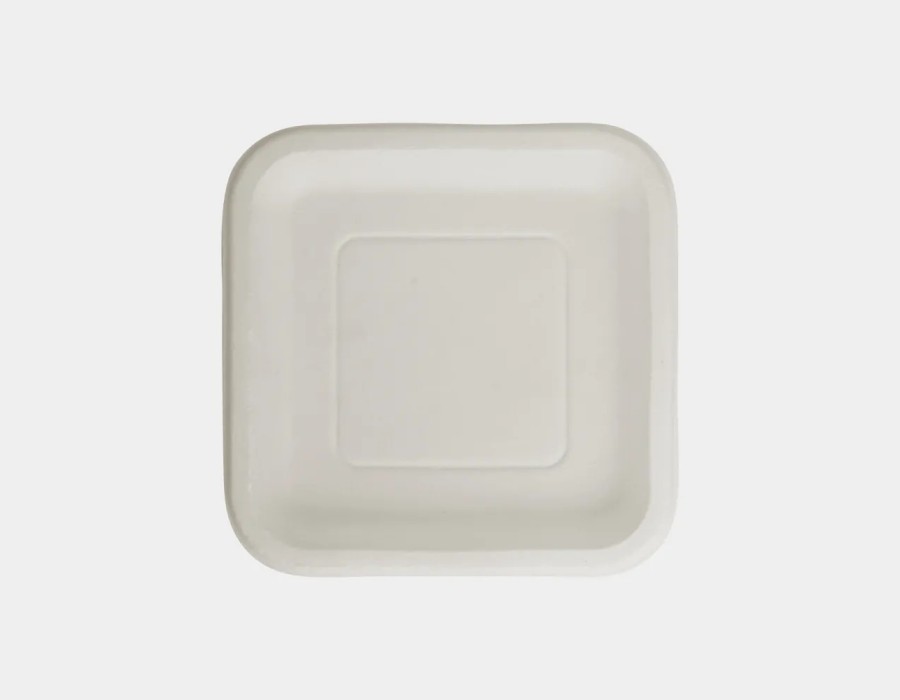Plastic pollution in oceans has become one of the most pressing environmental challenges of our time, with millions of tons of plastic waste entering marine ecosystems each year. This pollution not only harms marine life but also disrupts ecosystems and impacts human health. As more sustainable options are sought, biodegradable tableware has emerged as a promising solution, particularly for disposable items that are frequently discarded after a single use. This blog explores how biodegradable tableware contributes to reducing ocean plastic pollution and why it’s a vital shift for a cleaner planet.
Understanding the Impact of Ocean Plastic Pollution
Plastic waste in the oceans harms marine species and ecosystems and can persist for hundreds of years. Discarded plastics break down into microplastics, which are ingested by marine animals and can enter the food chain, affecting all life forms, including humans. Each year, about 8 million metric tons of plastic end up in the ocean, primarily due to improper disposal and the long life of traditional plastics. Replacing disposable plastic with biodegradable tableware could drastically reduce the number of single-use plastics polluting our waterways.
What Makes Biodegradable Tableware a Better Choice?
Biodegradable tableware is made from natural, renewable materials like sugarcane bagasse, cornstarch, bamboo fiber, and palm leaves, which can decompose quickly in the environment under proper conditions. Unlike traditional plastic, which can persist in the ecosystem for centuries, biodegradable tableware breaks down into organic components, reducing its impact on the ocean and marine life.
Shorter Lifespan in the Environment: While plastic takes hundreds of years to decompose, biodegradable alternatives can break down in a matter of months to a few years, depending on the conditions.
Reducing Plastic Waste: Why Biodegradable Tableware is Effective
Switching from single-use plastics to biodegradable tableware significantly reduces plastic waste, as these alternatives are designed to decompose more quickly and naturally. Here are a few ways biodegradable tableware helps:
Lowering Demand for Single-Use Plastics: Biodegradable options reduce the need for traditional plastics, cutting down on the production and disposal of plastic products that often end up in oceans.
Benefits for Marine Life and Ecosystems
The shift to biodegradable tableware benefits not only the oceans but also the myriad species that call it home. Every year, thousands of marine animals suffer or die because of plastic ingestion or entanglement, often mistaking plastic particles for food.
Safe Decomposition: When biodegradable tableware enters the ocean, it breaks down safely without releasing harmful chemicals or toxic substances, unlike some plastics that leach pollutants.
A Growing Movement Among Consumers and Businesses
Consumer and corporate demand for eco-friendly products is a driving force behind the shift toward biodegradable tableware. From small cafes to large catering companies, more businesses are adopting sustainable practices, and biodegradable tableware is an easy yet impactful switch.
Consumer Awareness: With greater awareness of environmental issues, consumers are more likely to support brands that prioritize sustainability. Biodegradable tableware meets this demand, enhancing brand loyalty and building a positive environmental image.
The Future of Sustainable Tableware
The movement toward biodegradable tableware is just beginning, and continued innovation will make these products even more efficient and accessible. Ongoing research into materials and biodegradability standards will help improve the effectiveness of sustainable options and further reduce their environmental impact.
Improved Biodegradability: Future advancements will likely make biodegradable tableware decompose even faster, increasing its eco-friendly benefits.
Conclusion
The adoption of biodegradable tableware is a powerful step toward reducing ocean plastic pollution. By choosing materials that decompose naturally, we can reduce the influx of single-use plastics into marine environments, protect marine life, and support healthier ecosystems. This shift also aligns with the broader goals of consumers, businesses, and governments to create a more sustainable and environmentally friendly future. With biodegradable tableware, we have an effective tool in the fight against ocean plastic pollution—an essential move for a cleaner, safer world.





Comments